Idea by
Gabriela Salazar, Agapi Dimitriadou
FRAME 408
Call for ideas 2016
VFL - Vivid Frame Lab
VFL - Vivid Frame Lab
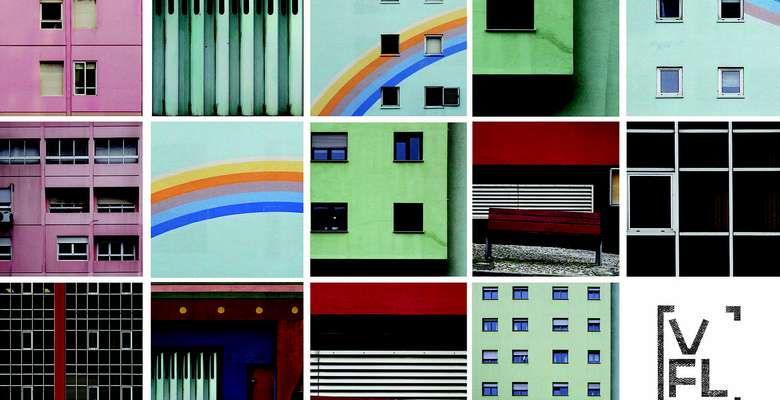
In the context of the worldwide demands for a socio-political structural shift, social innovation is an opportunity where architecture emerges as a discipline to be reclaimed from the narratives of authority and given back to the collective practice.
VFL is a research lab exploring how to share architectural knowledge to activate collective ideas and actions for our urban environment. Although participatory methods have been introduced in institutionalized urban design processes, they possess virtually no funding, maintaining the collaborative practice to a highly precarious standard. We suggest that the collaborative decision making, can promote not only social equality and active citizenship, but can have a great economical impact, making collaborative processes a profitable financial investment.
Architecture has moved once from the utopian mega scale to the individual focus. VFL invites everyone to take part in bringing the scale shift further towards a democratic collective one.
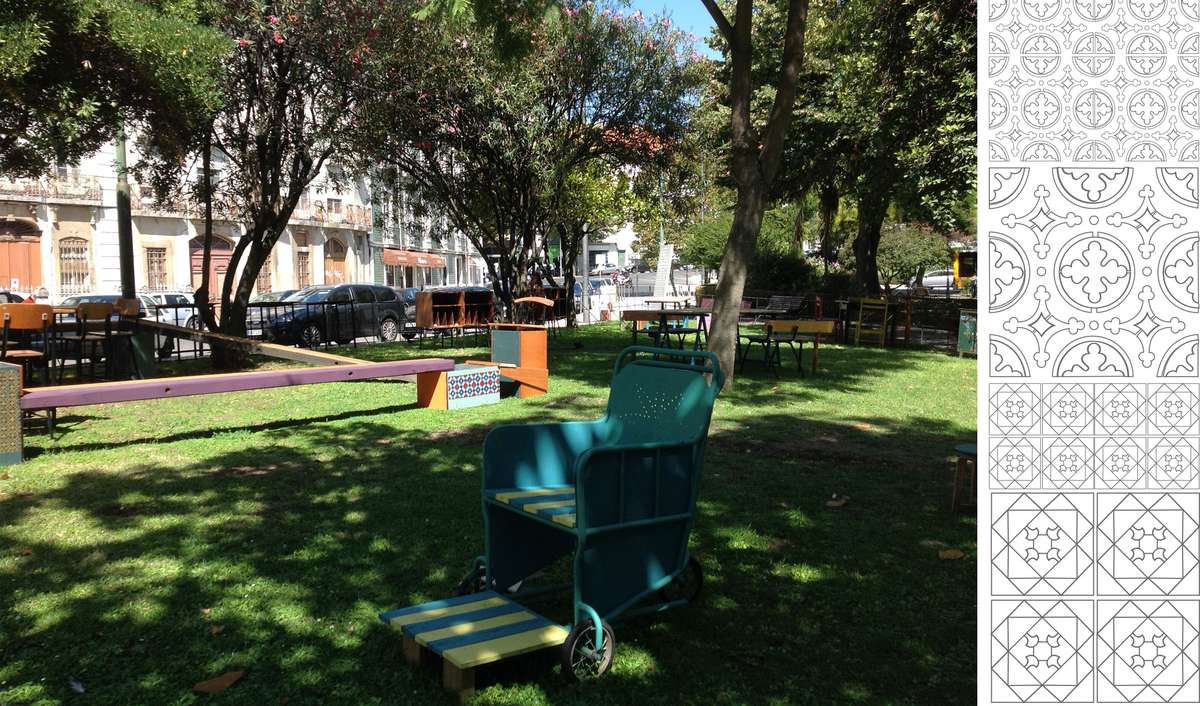
Furniture created with recycled materials during an open summer workshop for the TODOS art festival. The garden of Santana was transformed into an open-air living room becoming the core of the festival. The furniture is now spread throughout Lisbon´s cultural venues.
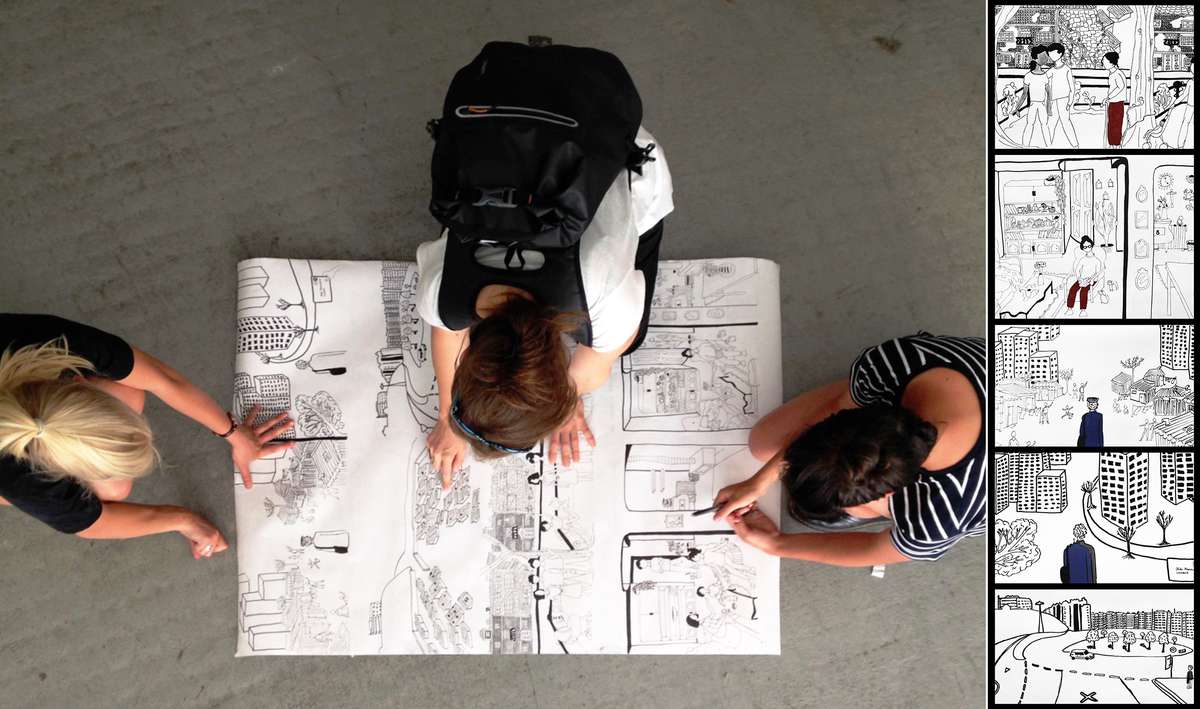
Storyboard visualising narratives of locals from the social housing neighbourhood, called Curraleira gathered during the initiative PERFORMAPPING. The results presented in an exhibition in the cultural hub Espaço da Penha, formed the ground for the project Estudio Maria Curraleira, a multimedia centre focusing on redefining the identity of this neighbourhood.
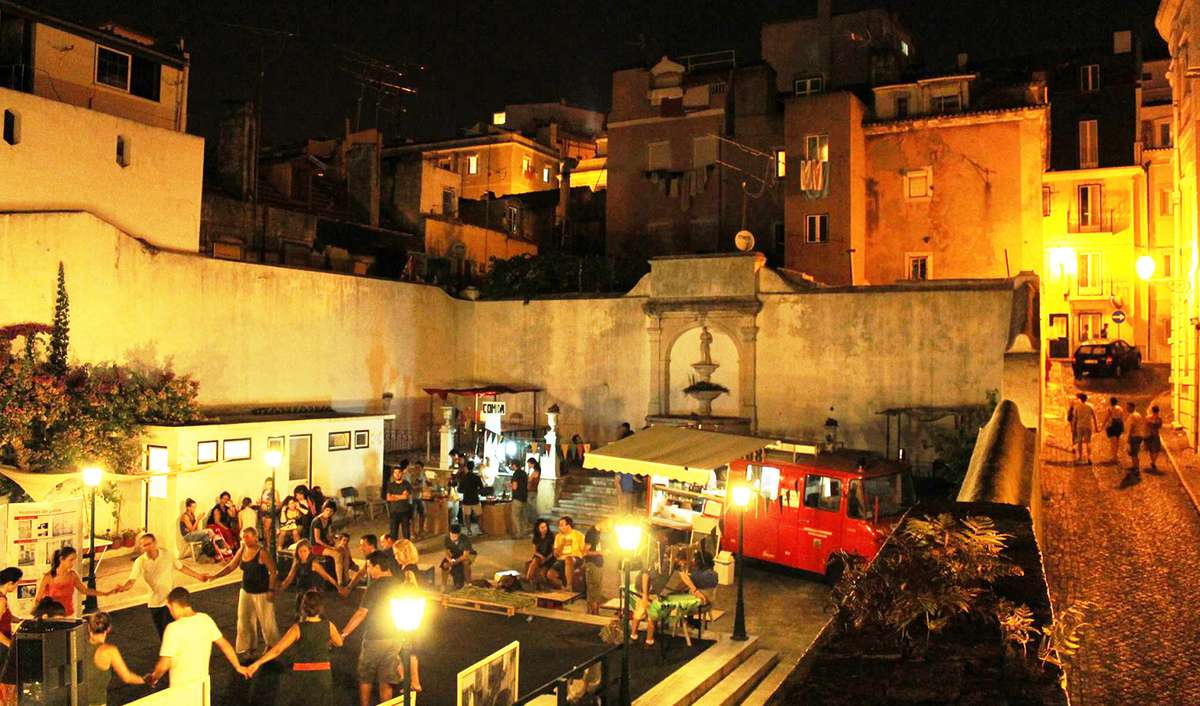
The pilot-project Pátio Ambulante promotes the integration of private community spaces in Lisbon´s public urban fabric. When a pátio opens its doors to the visitors, this closed and intimate open space transforms to a public square offering social space to the otherwise very dense urban fabric. During the open days, the pátio of São João gathered people from different ages, various social and economic classes and nationalities.
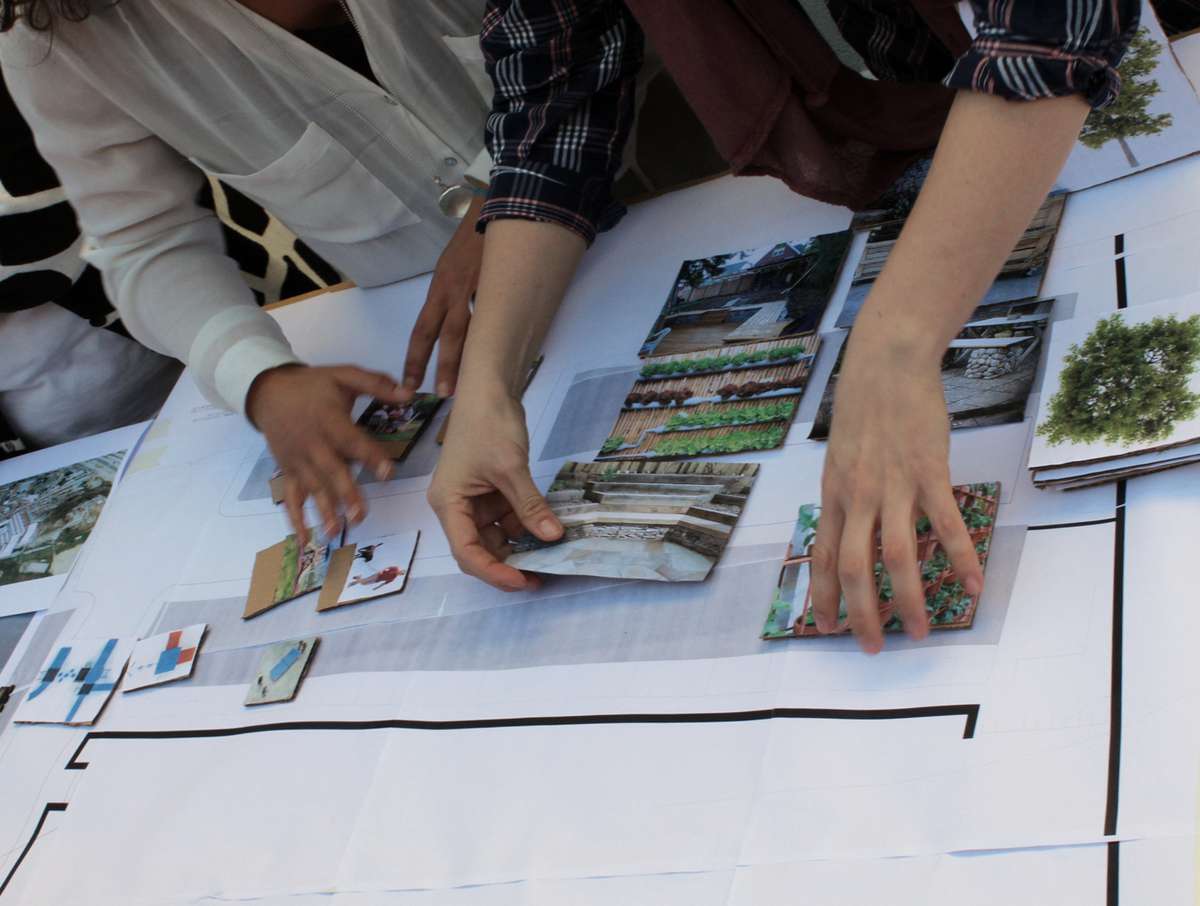
Participation process in the Vila Cândida, a social housing unit from the 1920s. The residents are owners not only of their apartments, but also of a communal abandoned lot. Through the collaborative design process the residents managed to organize themselves in an association and enter in direct dialog with the city hall, negotiating their rights and creating future collaborations. The building process for an open garden is to start summer 2016.
VFL - Vivid Frame Lab
VFL - Vivid Frame Lab

In the context of the worldwide demands for a socio-political structural shift, social innovation is an opportunity where architecture emerges as a discipline to be reclaimed from the narratives of authority and given back to the collective practice.
VFL is a research lab exploring how to share architectural knowledge to activate collective ideas and actions for our urban environment. Although participatory methods have been introduced in institutionalized urban design processes, they possess virtually no funding, maintaining the collaborative practice to a highly precarious standard. We suggest that the collaborative decision making, can promote not only social equality and active citizenship, but can have a great economical impact, making collaborative processes a profitable financial investment.
Architecture has moved once from the utopian mega scale to the individual focus. VFL invites everyone to take part in bringing the scale shift further towards a democratic collective one.
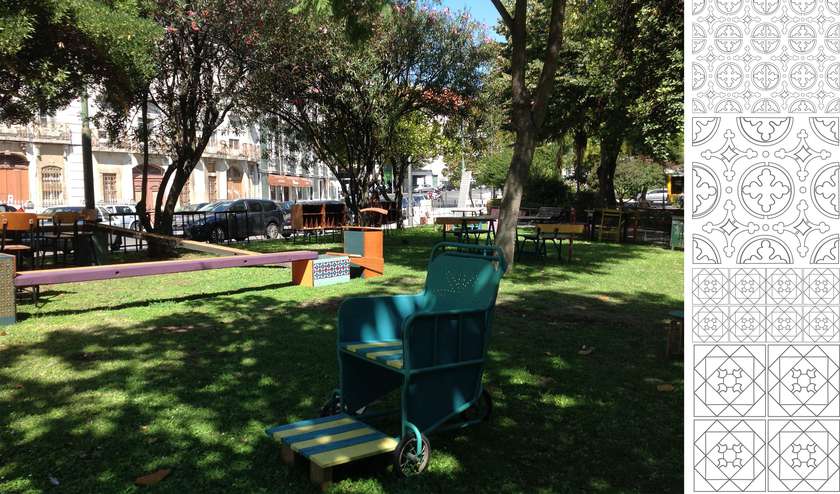
Furniture created with recycled materials during an open summer workshop for the TODOS art festival. The garden of Santana was transformed into an open-air living room becoming the core of the festival. The furniture is now spread throughout Lisbon´s cultural venues.
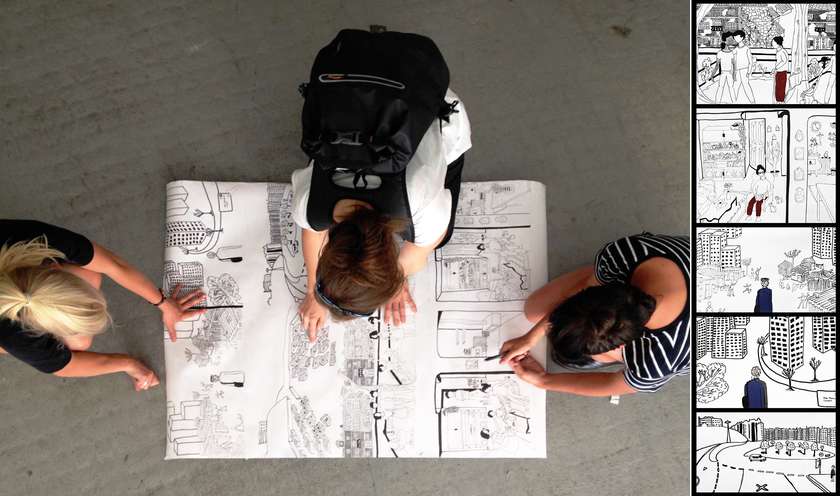
Storyboard visualising narratives of locals from the social housing neighbourhood, called Curraleira gathered during the initiative PERFORMAPPING. The results presented in an exhibition in the cultural hub Espaço da Penha, formed the ground for the project Estudio Maria Curraleira, a multimedia centre focusing on redefining the identity of this neighbourhood.
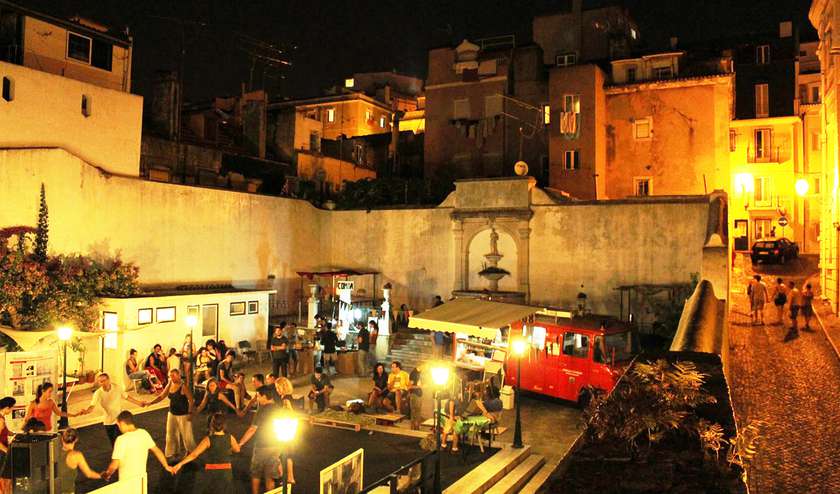
The pilot-project Pátio Ambulante promotes the integration of private community spaces in Lisbon´s public urban fabric. When a pátio opens its doors to the visitors, this closed and intimate open space transforms to a public square offering social space to the otherwise very dense urban fabric. During the open days, the pátio of São João gathered people from different ages, various social and economic classes and nationalities.
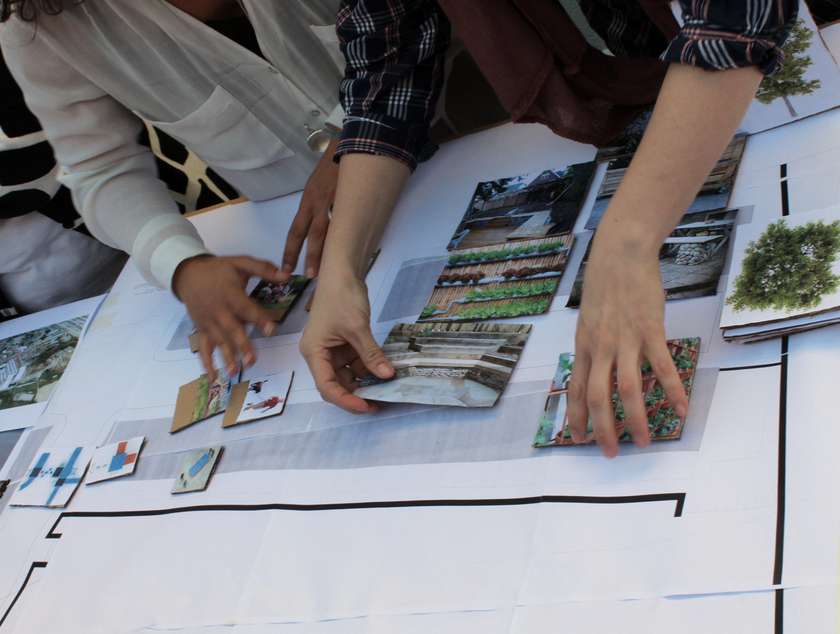
Participation process in the Vila Cândida, a social housing unit from the 1920s. The residents are owners not only of their apartments, but also of a communal abandoned lot. Through the collaborative design process the residents managed to organize themselves in an association and enter in direct dialog with the city hall, negotiating their rights and creating future collaborations. The building process for an open garden is to start summer 2016.